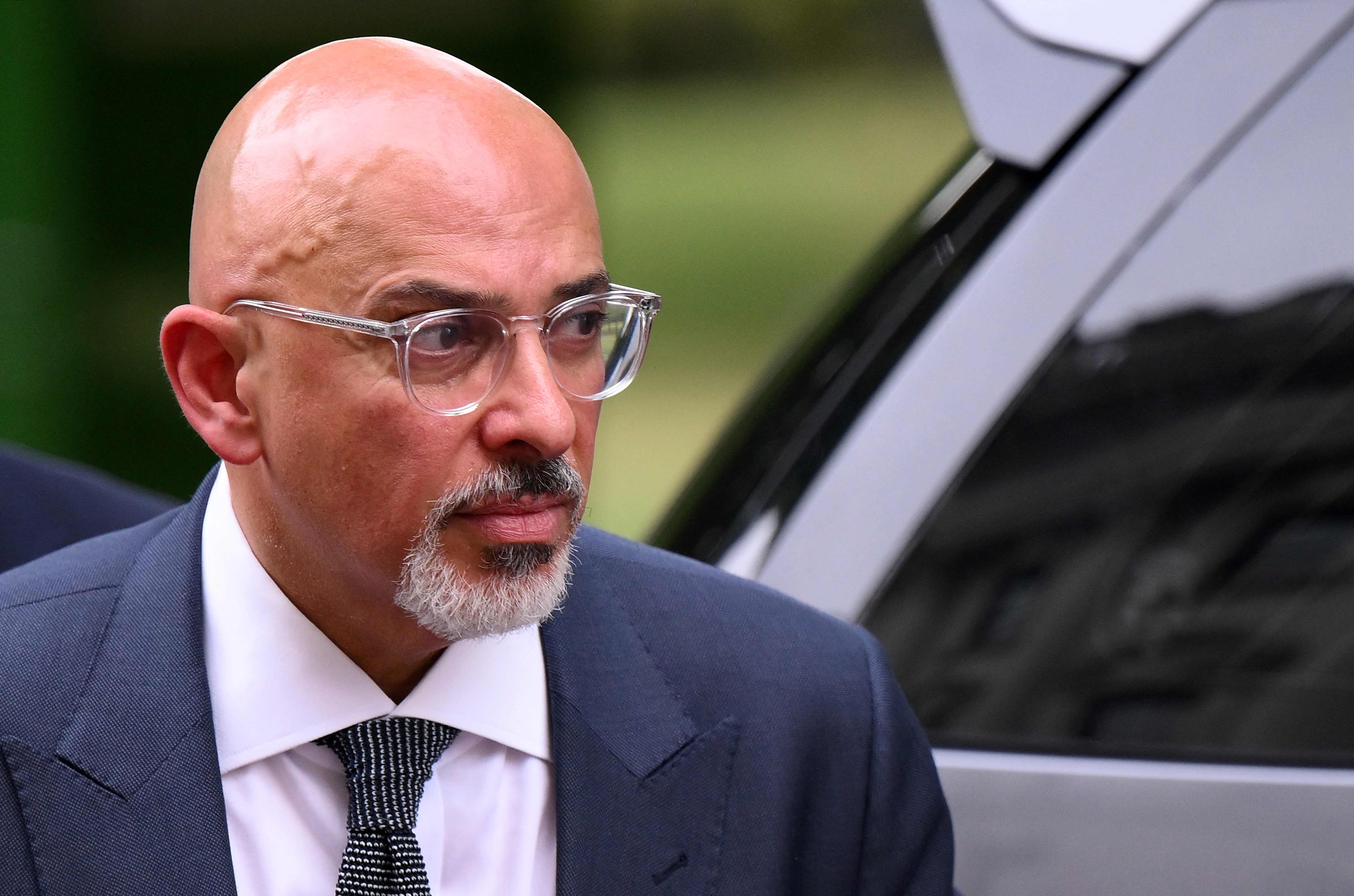Would-be PMs like Nadhim Zahawi must commit to openness and honesty
Editorial: The ‘good chaps’ theory of government belongs to a bygone age now we have witnessed the damage when a bad apple reaches the top of the barrel

Last Tuesday night, Nadhim Zahawi was appointed chancellor as Boris Johnson tried to steady his sinking ship after the resignations of Rishi Sunak and Sajid Javid. Twenty-four hours later, Mr Zahawi was among the cabinet ministers privately urging Mr Johnson to bow to the inevitable and stand down.
Remarkably, on Thursday morning the new chancellor made public a letter on Treasury-headed notepaper in which he told the prime minister: “You know in your heart what the right thing to do is… go now.”
While some Tories admired Mr Zahawi’s ruthless streak, his rapid transformation from member of Mr Johnson’s praetorian guard to political assassin raised eyebrows at Westminster; his actions may harm his campaign to become Conservative Party leader.
Some Tories are privately wary about the business activities which helped Mr Zahawi become the UK’s second-richest MP after Mr Sunak. Although wealth should not be a barrier to becoming an MP, a party leader or prime minister, when legitimate questions are raised about how it was accrued, a politician has a duty to answer them. After The Independent disclosed the non-domiciled status of Mr Sunak’s wife, Akshata Murty, she rightly agreed to pay UK tax on her overseas earnings.
The Independent has now revealed that Mr Zahawi is currently the subject of an investigation by HM Revenue & Customs (HMRC), which comes under the Treasury’s remit. It appears that Mr Johnson was made aware of this by officials, but nonetheless appointed him chancellor.
Mr Zahawi, who moved to the UK from Iraq as a nine-year-old when he could not speak English, made his fortune after co-founding the polling company YouGov and in the oil industry. He was an executive at Gulf Keystone Petroleum until 2018 when he was appointed a minister, eight years after becoming MP for Stratford-on-Avon.
Mr Zahawi’s finances were investigated by the National Crime Agency and Serious Fraud Office before the inquiry was passed to HMRC. It is understood the HMRC inquiry is being conducted by a unit responsible for offshore tax issues.
There is no suggestion of any wrongdoing by Mr Zahawi, whose spokesperson said all his financial interests have been properly and transparently declared, adding: “Mr Zahawi is not aware of any formal investigation by HMRC. His taxes are fully paid and up to date. He will provide full information to any queries that HMRC have about his tax affairs.”
All the candidates in the Tory race will doubtless promise to improve standards in public life after a woeful decline under Mr Johnson. It is symbolic that as his premiership ends, the important post of his adviser on ministerial interests remains unfilled after the two previous holders, Alex Allan and Christopher Geidt, resigned over his lax approach to standards. Mr Johnson has diluted the code of conduct for ministers, weakening the commitment to the seven principles of public life introduced after a previous Tory government under John Major was afflicted by sleaze.
A pledge to ensure “selflessness, integrity, objectivity, accountability, openness, honesty and leadership” should be reinserted into the prime minister’s foreword to the code by Mr Johnson’s successor. The ministerial adviser’s post should be put on a statutory footing so it cannot be abolished or unfilled, and the holder should have the power to investigate ministers, including the prime minister, without the prime minister’s permission. The “good chaps” theory of government belongs to a bygone age now we have witnessed the damage when a bad apple reaches the top of the barrel.
A commitment to openness should extend to the financial affairs of ministers and would-be leaders. On Sunday, two contenders for the Tory crown, Jeremy Hunt and Mr Javid, agreed to publish their tax details if they reach the run-off between the two candidates who will go into a ballot of party members.
To keep up to speed with all the latest opinions and comment, sign up to our free weekly Voices Dispatches newsletter by clicking here
The Independent disclosed in April that Mr Javid used an offshore trust while working as a parliamentary private secretary to George Osborne at the Treasury. He previously had non-dom status before going into politics.
The pledges by Mr Hunt and Mr Javid are welcome but there is no reason for candidates to delay coming clean about their financial affairs until the final lap of the race; the information could influence Tory MPs as they whittle down an ever-lengthening list of candidates to two names over the next 10 days.
The Johnson era has highlighted the need for honesty, transparency and integrity in our politicians. Keir Starmer’s gamble in offering to resign if his “beer and curry” in Durham resulted in a fixed penalty notice has paid off now that he has been cleared, making it even more important for the Tories to show voters they have cleaned up their act.
Worryingly, the opening shots in the contest suggest it might become a scramble to offer the biggest tax cuts rather than putting issues of probity centre stage. Yet the Tories should remember that standards matter. Under its new leader, the party will risk paying a heavy electoral price if it fails to address the causes of Mr Johnson’s ignominious downfall.






Join our commenting forum
Join thought-provoking conversations, follow other Independent readers and see their replies
Comments